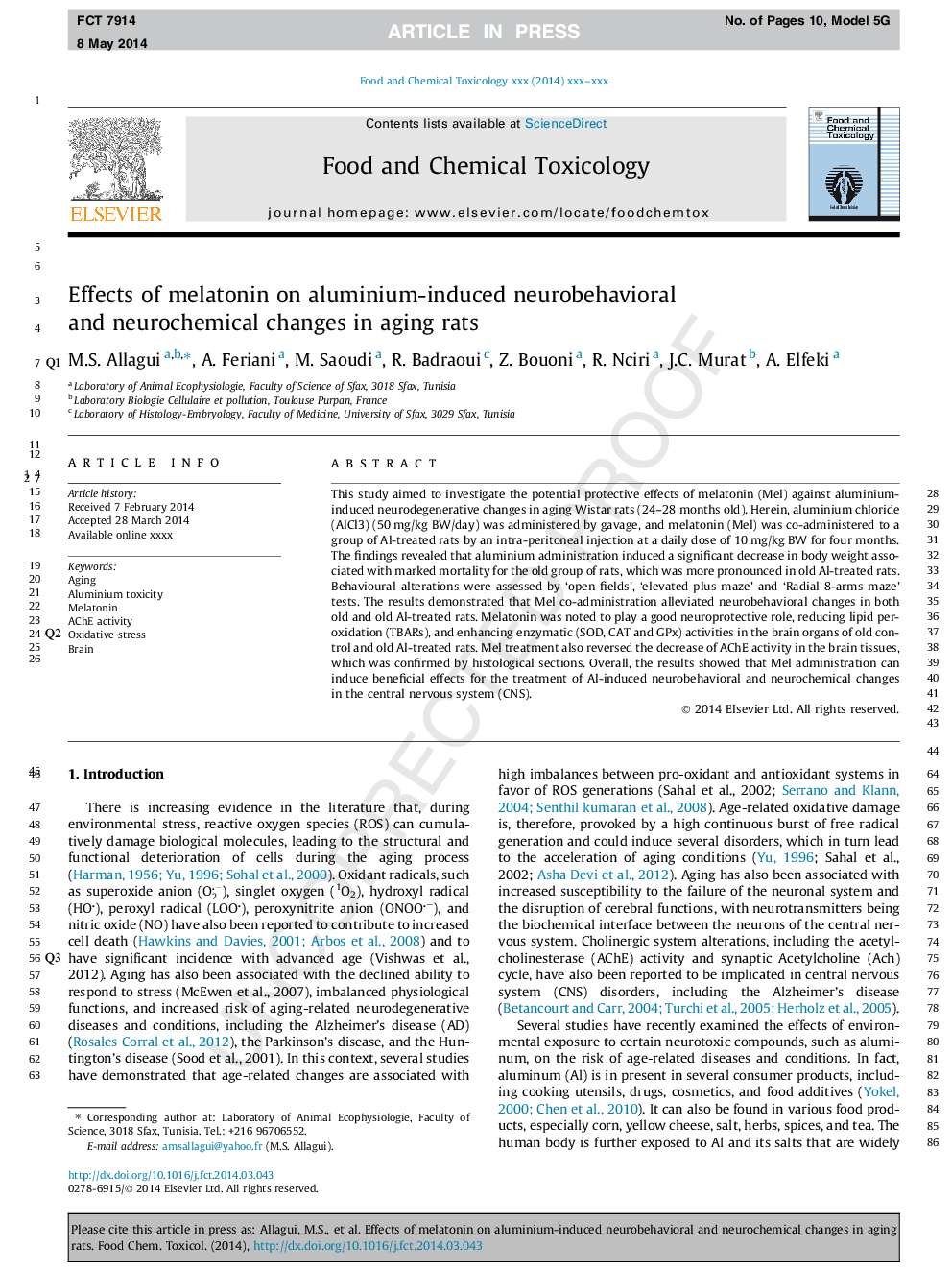| Article ID | Journal | Published Year | Pages | File Type |
|---|---|---|---|---|
| 5850155 | Food and Chemical Toxicology | 2014 | 10 Pages |
Abstract
This study aimed to investigate the potential protective effects of melatonin (Mel) against aluminium-induced neurodegenerative changes in aging Wistar rats (24-28Â months old). Herein, aluminium chloride (AlCl3) (50Â mg/kg BW/day) was administered by gavage, and melatonin (Mel) was co-administered to a group of Al-treated rats by an intra-peritoneal injection at a daily dose of 10Â mg/kg BW for four months. The findings revealed that aluminium administration induced a significant decrease in body weight associated with marked mortality for the old group of rats, which was more pronounced in old Al-treated rats. Behavioural alterations were assessed by 'open fields', 'elevated plus maze' and 'Radial 8-arms maze' tests. The results demonstrated that Mel co-administration alleviated neurobehavioral changes in both old and old Al-treated rats. Melatonin was noted to play a good neuroprotective role, reducing lipid peroxidation (TBARs), and enhancing enzymatic (SOD, CAT and GPx) activities in the brain organs of old control and old Al-treated rats. Mel treatment also reversed the decrease of AChE activity in the brain tissues, which was confirmed by histological sections. Overall, the results showed that Mel administration can induce beneficial effects for the treatment of Al-induced neurobehavioral and neurochemical changes in the central nervous system (CNS).
Related Topics
Life Sciences
Agricultural and Biological Sciences
Food Science
Authors
M.S. Allagui, A. Feriani, M. Saoudi, R. Badraoui, Z. Bouoni, R. Nciri, J.C. Murat, A. Elfeki,
